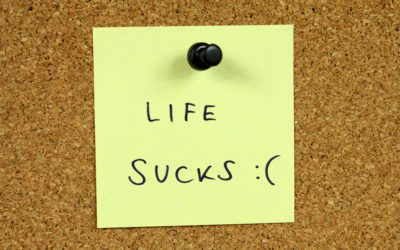At the heart of our “Falling in Love with Your Business” program is an exploration of the impact of loving what you do on productivity. While it’s not a particularly contentious statement to say that people who love what they do are more productive, the deeper question is “why”? What is it about loving what we do that makes us do it better?
Here are a few of the things I’ve seen so far…
1. Patience
I was sitting with a Tibetan meditation teacher some years ago and he asked me what my goals were for my practice. I wasn’t convinced about how much practicing I was actually going to do, but I thought about it and remembered a video I’d once seen where the spiritual philosopher Ken Wilber stopped his brain waves as measured on an EEG machine while maintaining conscious awareness. (You can watch the video here.)
That seemed pretty cool to me, so I told my teacher that was my goal for my practice. He was very encouraging.
“One of these lifetimes, Michael,” he began, “I truly believe you will be able to do it.”
Once I realized he wasn’t joking, I also realized that perhaps my time frame for success was a bit shorter than what was needed for that particular project. It also became obvious to me that I didn’t have the patience to meditate for hours, let alone lifetimes, to get there. Mostly because I didn’t really like meditating very much.
But when we love doing something, time is only a factor in that we often feel we don’t have enough of it, experiencing the demands of the rest of our daily activities as interruptions to our glorious obsession.
2. Resilience
Here’s a video of skateboarder Christian Flores spending 2 years and over 2000 attempts mastering one trick – a “laser flip triple set” which to my uneducated eye looks like doing magical flippy things with a skateboard while clearing three short flights of stairs in the air. While you can see Christian’s frustration (and bruises) along the way, you can also feel his love of the game – a love that makes sticking with it the obvious thing to do even when nothing seems to be going your way.
By way of contrast, I went snowboarding once. Once. When the instructor refused to answer my questions about how to stop, getting all Kung Fu Panda on me and saying the California dude equivalent of “You will figure it out in your own way, grasshopper”, I did indeed figure it out. I ran face first into a chairlift pole, effectively stopping my forward progress and ending my snowboarding career before it began.
While we could attribute the difference between Mr. Flores and Mr. Neill as being a character trait he has in spades that I need to develop, I know that’s not true. I’ve thrown away enough half-written blog posts, articles over the past seventeen years to fill several dozen books and those “failures” have never put me off writing for more than a half-hour or so of petulant frustration. The difference is I’ve always had a bit of a love affair with writing, whereas snowboarding was something I thought I’d try in a vainglorious attempt at bonding with my teenage son.
The point is when we love what we’re doing, failure doesn’t feel like failure because we know it’s not the end point – it’s just another step along a journey we expect to be taking for as long as we have the heart and mind to take it.
3. Enthusiasm
Years ago I worked on a job that required me to live in a small hotel in a small town where I didn’t know anyone except for the people I worked with. I was there for several months, and each weekend when the rest of the crew returned to their homes and families, I stayed on my own in my little hotel room feeling sorry for myself.
Despite making this known, no invitations to spend the weekend were forthcoming, so after about a month I finally got myself sufficiently lathered up to confront one of my best friends on the job and ask him why he wouldn’t invite me to his family home for the weekend.
He looked embarrassed as he explained “it’s my mum’s cooking – you can taste the hate.”
While I never did put that to the test, there’s something about a grudging, resentful service provider that puts a bad taste in the mouth of a customer, even if technically the job is done precisely to spec. Similarly, we can taste the love and enthusiasm of the people around us even if we have no idea how they could possibly be so enthusiastic about cleaning a home, installing an air conditioner, or drilling long holes in round hunks of metal, an activity my father did with love his entire adult life.
If you’ve ever tried to fake enthusiasm for something, you know it’s not sustainable over time. But when you genuinely love to do something, enthusiasm has to be contained, not produced.
4. Standards
My daughter does not like doing the dishes. While this is not unusual, it is one of the jobs she has in the micro-economy of our home, and the net effect is that most days my wife or I wind up finishing off or even re-doing the job. My daughter’s standard for doing the dishes is in perfect alignment with her lack of love of the job – she hates doing them and does a terrible job, albeit generally just good enough to retain her allowance for another week.
By way of contrast, she loves to dance and dances every spare hour she can, somehow squeezing 20+ hours a week of extra work into an already full schedule of college-prep classes and homework. And when it comes to dance, good enough is never good enough. A solo which has been worked a hundred times needs a hundred more so that every trick is landed and every possible nuance can be brought out of the choreography.
At an insecure extreme, this kind of perfectionism could be misery making, but in her case as is the case with so many people who love what they do, it’s part of the joy of the job. Rather than see how little you need to do and how much you can get away with, love makes us double down, continually seeking improvement and innovation, always wondering how much more we can bring to the table.
5. Creativity
There are essentially two reasons people seek out recipes for success. The first is practical and essentially benign – they’re learning how to do something new and want to be guided along the early steps of the path. The second seems practical on the surface but is actually insidious – they seek out a recipe so they don’t have to engage at the level where their own creative genius will be unleashed.
It is absolutely possible to learn to do things by rote – simply through practice and repetition. When we watch a performer who has learned their part by rote, we can’t fault any individual aspect of what they are doing but it doesn’t grab us. We come away impressed, but unmoved.
By way of contrast, when someone throws themselves into what they are doing to the point where they engage with a deeper dimension of the mind – that invisible creative intelligence inside of us – it acts as a kind of an “x-factor” that makes them inexplicably more impactful and effective than other people who seem to be doing the same things or at least going through the same motions. This connection to the deeper mind is like a secret sauce that makes everything taste better, and it naturally emerges when we love what we do.
In part two, I’ll do my best to answer the most common question I hear around all this, which is “how do you fall in love with doing something you hate doing?”, but for today, take some time to consider your answers to the following questions:
- What do you see as the connection between loving what you do and productivity?
- Think of two activities – one you love doing, another you are indifferent to or even actively dislike. What’s different in how you go about them? What’s different in you?
- If it really were up to you, what aspects of your current job would be worth falling in love with? What would it be like to actually love doing them?
Have fun, learn heaps, and happy exploring!
With all my love,
![]()










